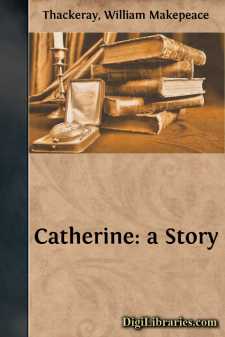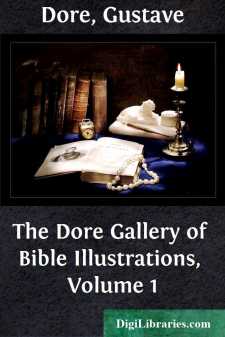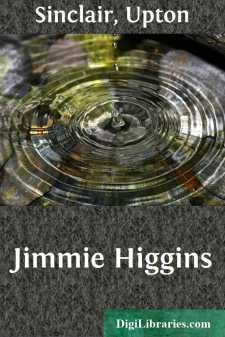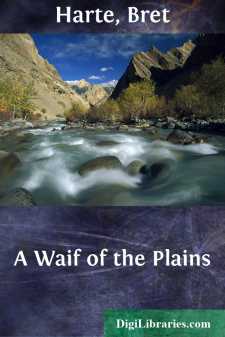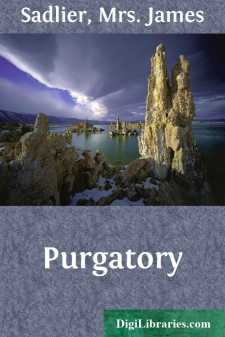Fiction
- Action & Adventure 180
- Biographical 15
- Christian 59
- Classics
- Coming of Age 5
- Contemporary Women 3
- Erotica 8
- Espionage/Intrigue 12
- Fairy Tales, Folklore & Mythology 236
- Family Life 169
- Fantasy 117
- Gay 1
- General 596
- Ghost 32
- Historical 808
- Horror 43
- Humorous 160
- Jewish 25
- Legal 4
- Medical 22
- Mystery & Detective 315
- Political 49
- Psychological 41
- Religious 64
- Romance 159
- Sagas 11
- Science Fiction 730
- Sea Stories 113
- Short Stories (single author) 537
- Sports 10
- Suspense 1
- Technological 8
- Thrillers 2
- Urban Life 31
- Visionary & Metaphysical 1
- War & Military 173
- Westerns 199
Classics Books
Sort by:
CHAPTER I. INTRODUCING TO THE READER THE CHIEF PERSONAGE OF THIS NARRATIVE. At that famous period of history, when the seventeenth century (after a deal of quarrelling, king-killing, reforming, republicanising, restoring, re-restoring, play-writing, sermon-writing, Oliver-Cromwellising, Stuartising, and Orangising, to be sure) had sunk into its grave, giving place to the lusty eighteenth; when Mr....
more...
by:
Anthony Trollope
INTRODUCTION There is the proper mood and the just environment for the reading as well as for the writing of works of fiction, and there can be no better place for the enjoying of a novel by Anthony Trollope than under a tree in Kensington Gardens of a summer day. Under a tree in the avenue that reaches down from the Round Pond to the Long Water. There, perhaps more than anywhere else, lingers the...
more...
by:
Gustave Dore
GUSTAVE DORE. The subject of this sketch is, perhaps, the most original and variously gifted designer the world has ever known. At an age when most men have scarcely passed their novitiate in art, and are still under the direction and discipline of their masters and the schools, he had won a brilliant reputation, and readers and scholars everywhere were gazing on his work with ever-increasing wonder...
more...
by:
Upton Sinclair
"Jimmie," said Lizzie, "couldn't we go see the pictures?" And Jimmie set down the saucer of hot coffee which he was in the act of adjusting to his mouth, and stared at his wife. He did not say anything; in three years and a half as a married man he had learned that one does not always say everything that comes into one's mind. But he meditated on the abysses that lie between...
more...
by:
Bret Harte
CHAPTER I A long level of dull gray that further away became a faint blue, with here and there darker patches that looked like water. At times an open space, blackened and burnt in an irregular circle, with a shred of newspaper, an old rag, or broken tin can lying in the ashes. Beyond these always a low dark line that seemed to sink into the ground at night, and rose again in the morning with the first...
more...
by:
Marion Harland
Chapter I The Tragedy of Rozillah UST look at her now, Molly! Isn't she the sweetest thing you ever saw?" Molly, that is, Myself, sitting on the door-step, elbows on knees and shoulders hunched sullenly up to my ears, did not budge or speak. Before my gloomy eyes was the kitchen yard, a gray and gritty expanse, with never a tree or bush to shade it except the lilac hedge bounding it on the...
more...
CHAPTER I. His teeth he still did grind, And grimly gnash, threatening revenge in vain.—SPENSER. IT is now time to return to Lord Vargrave. His most sanguine hopes were realized; all things seemed to prosper. The hand of Evelyn Cameron was pledged to him, the wedding-day was fixed. In less than a week she was to confer upon the ruined peer a splendid dowry, that would...
more...
INTRODUCTION I have written many books and translated many more on a great variety of subjects, nearly all of which, I thank God now with all my heart, were more or less religious, at least in their tendency; but the circle of these my life-long labors seems to me incomplete. One link is wanting to the chain, and that is a work specially devoted to the souls in Purgatory. This omission I am anxious to...
more...
by:
Kelly Freas
It was the afternoon of our arrival. Our fellow members of the "test colony" were back in the clearing at the edge of the lake, getting their ground-legs and drinking in the sweet, clean air of Sirius XXII. I was strolling along the strip of sandy beach with Phillip Benson, leader of our group, sniffing the spicy perfume of the forest that crowded within twenty feet of the water's edge....
more...
CHAPTER I. In the gardens at Naples, one summer evening in the last century, some four or five gentlemen were seated under a tree drinking their sherbet and listening, in the intervals of conversation, to the music which enlivened that gay and favorite resort of an indolent population. One of this little party was a young Englishman who had been the life of the whole group, but who for the last few...
more...


